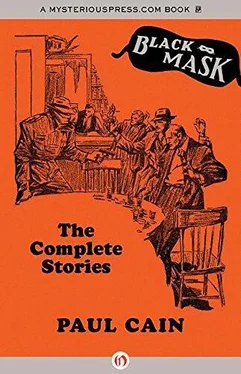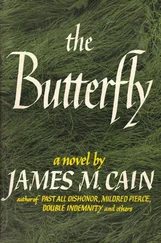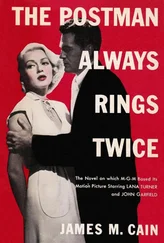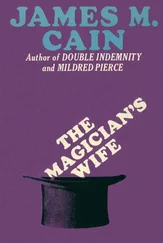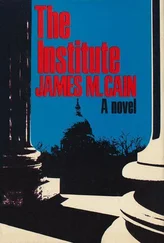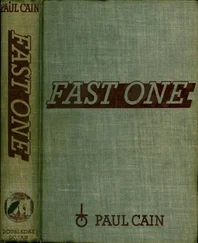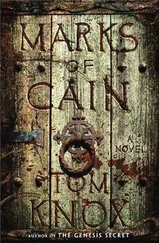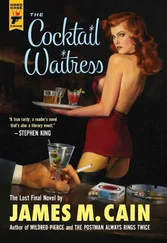Kells went on. “Of course it all came back to Rose in the morning. He asked about the pictures and she gave him a couple rolls of film that she’d stuck into the camera during the night, clicked with the lens shut, blanks. She discovered that the lens wasn’t open when she gave them to him, they had one of those morning after laughs about it. Bellmann had a dark green hangover; he didn’t even remember about the pictures until a day or so later, and then he wrote Miss Granquist a couple of hot letters with casual postscripts: ‘How did the snapshots turn out, darling?’ cracks like that.”
Kells got up, stretched. “You see, it gets better as it goes along.”
“What are the pictures like?” Fenner was standing near Granquist, his little pointed chin thrust towards Kells.
“Don’t be silly. They’re right out of the pocket of one of those frogs that work along the Rue de Rivoli.” Kells ran his fingers through his hair. “That’s not the point though. It’s not what they are, it’s who they’re of: Mister John R. Bellmann, the big boss of the reform administration, the Woman’s Club politician — at the house and in the intimate company of Jack Rose, gambler, Crown Prince of the Western Underworld — and a couple of, well, — questionable ladies.”
“And exactly what am I buying?”
“The negatives and one set of prints. My word that you’re getting all the negatives and that there are no other prints. The letters. And certain information as to what Mister Bellmann and Mister Rose talked about before they went under...”
The doorbell rang.
Fenner said: “That’ll be Dillon.” He went out into the hallway and came back with a sandy-haired, spectacled man. Both of them were holding their hands above their shoulders in the conventional gesture of surprise. Two men whom Kells had never seen before came in behind them. One, the most striking, was rather fat and his small head stuck out of a stiff collar. His tie was knotted to stick straight out, stiffly from the opening in his collar. He held a short blunt revolver in his hand.
The fat man said: “Go see if the tall one has got anything in his pockets.”
The other man went to Kells. He was a gray-faced nondescript young man in a tightly belted raincoat. He went through Kells’ pockets very carefully and when he had finished, said: “Sit down.” Dillon shifted his weight from one foot to the other, and the fat man, who was almost directly behind him, raised the revolver and brought the barrel down hard on the back of his head. Dillon grunted and his knees gave way and he slumped down softly to the floor.
The fat man giggled quietly, nervously. He said: “That’s one down. Every little bit helps.”
Kells sat down on the divan and leaned back and crossed his legs.
The fat man said: “Put your hands up, Skinny.”
Kells shook his head.
The young man in the raincoat leaned forward and slapped Kells across the mouth. Kells looked up at him, and his face was very sad, his eyes were sleepy. He said: “That’s too bad.”
Fenner turned his head, spoke over his shoulder to the fat man. “What do you want?”
“I don’t want you. Go sit down in that chair by the window.”
Fenner crossed the room, sat down.
The fat man said: “Reach back of you and pull the shades shut.”
Granquist said sarcastically: “Now pull up a chair for yourself, Fat.” She leaned forward towards the table. “Ain’t you going to have a drink?”
Kells said: “Don’t say ‘ain’t,’ sweet.”
The fat man sat down in the chair nearest the door. His elbows were on the arms of the chair and he held the revolver loosely on his lap.
He said: “I want a bunch of pictures that you tried to peddle to Bellmann, girlie.”
“Don’t call me girlie, you son of a bitch!”
Kells looked at Granquist, shook his head sadly. “That’s something you forgot to tell me about,” he said.
“I want all the pictures,” the fat man repeated, “an’ I want two letters — quick.”
Granquist was staring at the fat man. She turned slowly to Kells. “That’s a lie, Gerry. I didn’t crack to Bellmann.”
Fenner stood up. “I won’t stand for this,” he said. He thrust his hands in his pockets and took a step forward.
“Sit down.” The fat man moved the revolver slightly until it focused on Fenner’s stomach.
Fenner stood still.
Kells said: “Does the fella who sent you know that if anything happens to me, the whole inside gets a swell spread in the morning papers?...”
The fat man smiled.
“... The inside on Haardt and the barge and Perry, and the Sunday-school picnic at Big Bear?” Kells went on.
Granquist was watching him intently.
“I made that arrangement this afternoon.” Kells leaned sidewise slowly and put his empty glass on an end table.
The fat man looked at Fenner, and Kells, and then he looked at Granquist and at the bag tucked into the chair beside her. He said: “That’s a dandy. Let’s have a look at it, girlie.”
Granquist stood up in one swift and precise movement. She moved to the window so swiftly that the fat man had only time to stand up and take one step towards her before she had moved the drape aside with her shoulder, crashed the bag through the window.
Glass tinkled on the sill.
Kells stood up in the same instant and brought his right fist up from the divan in a long arc to the side of the grayfaced young man’s jaw.
The young man spun half around and Kells swung his right fist again to the same place. The young man fell half on the divan, half on the floor.
The fat man moved towards Kells, stopped in the center of the floor.
Granquist yelled: “Smack him, Gerry; he won’t shoot.”
Kells stood with his feet wide apart. He grinned at the fat man.
Fenner was standing near Granquist at the window. His eyes were wide and he tried to say something but the words stuck in his throat.
The fat man backed towards the door. “I ain’t got orders to shoot, but I sure will if you press me.” He backed out into the semidarkness of the hallway and then the outer door slammed.
Granquist ran across the room, stopped a moment in the doorway, turned her head towards Kells. She said, “I’ll get the bag,” and she spoke so rapidly, so breathlessly, that the words were all run together into one word. She went into the darkness.
Kells turned to Fenner. “Give her a hand,” he said.
He bent over the young man, took a small automatic out of the raincoat pocket and handed it to Fenner. “Hurry up — I’ve got to telephone — I’ll be right down.”
Fenner took the automatic dazedly. He looked at the man on the floor and at Kells, and then he came suddenly to life. “It’s in the court,” he said excitedly. “I can get out there from the third floor.”
“Maybe the bag was a stall. Don’t let her get out of your sight.” Kells sat down at the telephone.
Fenner hurried out of the room.
Kells waited until he heard the outer door slam, then got up and went to Dillon. He knelt and drew a long yellow envelope from Dillon’s inside breast pocket. It was heavily sealed. He tore off the end, spread the envelope by pressing the edges, and looked inside. Then, smiling blankly, he tucked it into his pocket.
He went to the broken window, raised it carefully and leaned out over the wet darkness of the court for a moment. He went into the kitchen and stood on the stove, looked through the high ventilating window across the narrow airshaft to the window of an adjoining apartment. Then he went into the bedroom and got his hat and Granquist’s coat and went out of the apartment, across the corridor to the elevator.
On the way down, he spoke to the elevator boy: “Is it still raining?”
Читать дальше
